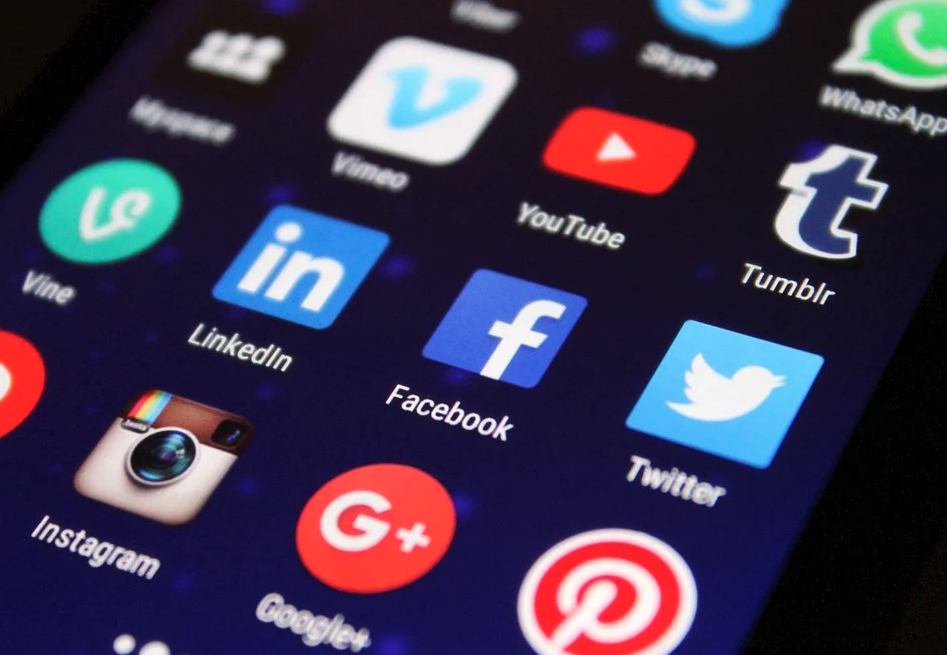What Social Media Platforms Are Best for Your Business in 2021?

In 2021, businesses are expected to have a presence on social media if they would like to be seen as credible, trustworthy, and easy to work with. But with so many social media platforms to choose from, it can be challenging to determine which ones you should be spending your time on to attract more business, and which ones you should stay off of. So, we created a breakdown of the top 7 platforms businesses should consider in 2021:
1. Facebook
With 2.7 billion monthly active users (almost 1.82 billion of which are daily users), Facebook is the largest and most popular social media network in the world. The number of users makes it a valuable tool for all businesses to find their target audience, discover new leads, build an email list, and interact with clients.
In 2021, it is essential to keep your Facebook business page active and to connect with your followers. Additionally, if you have the budget (and a decent amount of time to research the ever-changing rules), we also recommend looking into Facebook ads.
2. LinkedIn
If you are a B2B or professional services business, LinkedIn is for you! However, it is important to note that users flock to this platform to learn more about their industry, network with other professionals, look for new career opportunities, and to search for active job listings. So, keep that in mind when you are developing a strategy for the type of content you publish.
3. Twitter
Twitter is a great platform for all businesses; however, it does take a significant amount of time and effort to stand out from your competition and engage with your audience (by publishing valuable content in your posts). To make an impact on Twitter, multiple tweets per day is required (not to mention research, working with influencers, and engaging with your followers).
Interestingly enough, Twitter ads actually have a slightly higher success rate than Facebook ads, so those may be worth considering once you’ve established an organic following.
4. YouTube
As you probably know, YouTube is the most well-known platform for sharing video content. With 300 hours of video uploaded to YouTube every minute, there is something for everyone—including entertainment, product/service/experience reviews, how-to videos, educational content, and more! Businesses can create a video channel and then playlists within their channel on topics relevant to their target audience. Your videos are a great way to build your brand image, gain credibility as an expert in your field, and to foster brand loyalty with your audience.
5. Instagram
Instagram was originally launched in 2010 for users to share photos and has, for the most part, remained true to that original purpose. In the years since, the platform has expanded to include videos, stories, and up to 10 photos in one post.
If your audience is younger and tends to do a lot of their shopping on mobile devices, then Instagram is a valuable tool for your business—especially if you sell products. Instagram’s checkout feature allows you to post product images that your customers can then view and purchase directly in Instagram.
If your clients tend to be older and your business is service-based, Instagram is still a valuable tool, however, we don’t recommend spending a significant amount of time or money on it.
6. Pinterest
Fun Fact: Pinterest is one of the most valuable social media platforms for small businesses! Over half of the 291 million active users are women between 25 and 54 years of age, so, if your business is geared toward the ladies, Pinterest is a must. But if it’s not, don’t rule out Pinterest just yet. Recent data shows that 48% of new users are men!
Additionally, the ROI on Pinterest ads is $4.30 for every $1 spent, making it less expensive AND more profitable to advertise on compared to both Facebook and Twitter. So, it may be worth it to look into how you can use Pinterest in your marketing plan, regardless of your target audience demographics.
7. Google My Business
If you are a local business, you need to be on Google My Business! Google is one of the first places someone will search when looking for a product or service, so it is essential that your business shows up in their results.
If you aren’t familiar with Google My Business, here is a quick rundown: it is a free account that allows business owners to manage how their business is displayed in Google Search results and on Google Maps. The listing will provide people with your business name, address, contact information, website link and hours of operation. You can also include additional information and updates to your profile as needed—check out our recent blog post WHAT’S NEW FOR YOUR BUSINESS IN GOOGLE? for recent changes to the social platform.
We know that we just threw a lot of information at you! If you have any questions, feel free to reach out and discuss your social media marketing strategy with us now.